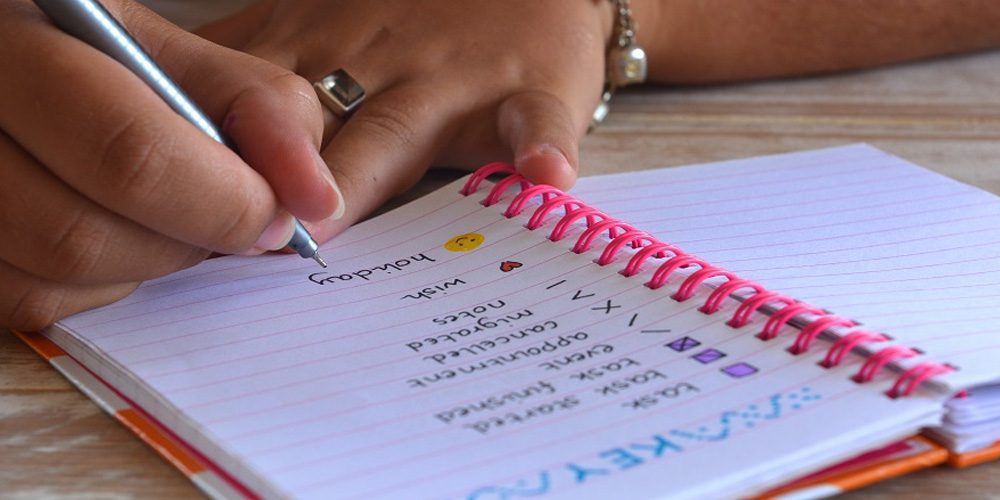Mindful journaling is the art of combining the practice of mindfulness with the act of writing in a journal. It involves bringing your full attention and awareness to the present moment while expressing your thoughts, emotions, and experiences on paper.
Mindful journaling goes beyond simply documenting events; it encourages a deep exploration of your inner world and fosters self-reflection and self-discovery. In mindful journaling, you cultivate a non-judgmental attitude towards your thoughts and feelings as you write.
It is not about seeking perfection or constructing elaborate prose; instead, it focuses on embracing authenticity and capturing the essence of your experience in its raw form. By engaging in this practice regularly, you develop a greater understanding of yourself while honing emotional intelligence and fostering personal growth.
Importance of mindfulness in daily life
Mindfulness is an essential aspect of mindful journaling as it brings attention to the present moment without judgment. In our fast-paced modern lives, we often find ourselves caught up in worries about the future or dwelling on past regrets.
Mindfulness acts as an anchor that grounds us in the here and now, allowing us to fully experience our lives. By cultivating mindfulness, we become more aware of our thoughts, emotions, physical sensations, and surroundings.
This awareness enables us to respond rather than react impulsively to challenging situations. Mindfulness also helps us become more attuned to our own needs and desires by encouraging self-compassion and self-care.
Incorporating mindfulness into our daily lives has numerous benefits for our overall well-being. It reduces stress levels by calming the mind and activating the relaxation response within our bodies.
It improves focus and concentration by training our minds to stay present instead of getting lost in distractions. Moreover, mindfulness enhances emotional resilience by allowing us to observe and regulate our emotions effectively.
In essence, mindfulness is a powerful tool that helps us navigate the complexities of life with greater clarity, compassion, and equanimity. By infusing this practice into journaling, mindful journaling becomes a transformative process that enriches our lives on multiple levels.
Benefits of Mindful Journaling
Emotional well-being and stress reduction
Mindful journaling has been proven to enhance emotional well-being and reduce stress levels. By engaging in regular journaling practice, individuals can develop a deeper sense of self-awareness and emotional intelligence.
When we put pen to paper, we allow ourselves to reflect upon our thoughts, feelings, and experiences in a non-judgmental way. This process of self-reflection helps us gain insight into our emotions, allowing us to better understand ourselves and how we relate to the world around us.
Furthermore, mindful journaling provides an effective outlet for managing anxiety and depression symptoms. Through the act of writing, we can release pent-up emotions, fears, or worries that may be weighing us down mentally.
As we put these thoughts onto paper, it creates a sense of release and catharsis. Additionally, by identifying patterns or triggers through journaling, individuals can develop coping strategies to better manage their anxiety or depression.
Improved focus and clarity
In today’s fast-paced world filled with distractions, cultivating focus and clarity is essential for personal growth and success. Mindful journaling serves as a powerful tool for enhancing cognitive abilities and concentration.
When we engage in the practice of mindful writing regularly, it trains our minds to stay focused on the present moment. By expressing our thoughts through writing with intentionality and mindfulness, we sharpen our mental faculties.
The act of organizing thoughts into coherent sentences strengthens neural pathways associated with attention span and concentration. Moreover, mindful journaling helps in developing problem-solving skills.
As you write down your challenges or dilemmas on paper, you give yourself the opportunity to analyze them objectively. By examining your problems from different angles within your journal entries over time – brainstorming potential solutions or seeking new perspectives – you pave the way for innovative problem-solving approaches.
Cultivating gratitude and positivity
Practicing gratitude is a fundamental aspect of mindfulness, and journaling provides an excellent platform for cultivating this positive mindset. By keeping a gratitude journal, individuals can record moments of appreciation or experiences that bring joy and fulfillment to their lives.
The act of intentionally focusing on positive aspects helps to shift our attention away from negativity or challenges. This practice rewires our brains to notice the good things in life more readily, strengthening neural connections associated with happiness.
Furthermore, mindful journaling promotes resilience by training us to focus on what is going well rather than dwelling on what isn’t. By consistently acknowledging the positives in our lives through journaling, we develop a more optimistic outlook and the ability to bounce back from difficulties with grace and determination.
Increasing overall life satisfaction
Ultimately, mindful journaling contributes significantly to an increased sense of overall life satisfaction. Through self-reflection and the cultivation of emotional intelligence, individuals gain a deeper understanding of their own desires, values, and goals. By setting aside regular time for mindful journaling practice, one becomes more intentional about aligning actions with personal values.
This alignment leads to a greater sense of purpose and fulfillment in daily life. As we uncover insights about ourselves through honest self-reflection within our journals, we become empowered to make positive changes that contribute to our well-being and happiness.
Engaging in mindful journaling offers numerous benefits for emotional well-being by enhancing self-awareness and managing anxiety or depression symptoms. It improves focus and clarity through strengthening cognitive abilities while also developing problem-solving skills.
Mindful journaling cultivates gratitude, positivity and resilience – all contributing factors towards increased overall life satisfaction. So grab your pen and notebook; it’s time to embark on this transformative journey toward better mental well-being!
Getting Started with Mindful Journaling
Choosing the right journal
When it comes to mindful journaling, choosing the right journal is an important first step. There are various types of journals available in the market, each with its own unique features and benefits. One option is a blank journal, which allows you the freedom to write and draw as you please.
It provides a blank canvas for your thoughts and creativity to flow onto the pages. Another type of journal that you might consider is a guided journal.
These journals often come with prompts or questions that can help guide your writing and self-reflection process. This can be particularly helpful if you’re new to journaling or need some guidance to get started.
In this digital age, there are also digital journals available that can be accessed through smartphone apps or online platforms. These digital journals offer convenience and accessibility, allowing you to write on the go without carrying around a physical notebook.
Factors to consider when selecting a journal
When selecting a journal for mindful writing, there are several factors worth considering: Size: Consider whether you prefer a compact pocket-sized journal that fits easily in your bag or a larger one with more space for free expression.
Format: Reflect on whether you prefer lined pages for structured writing or unlined pages for doodling and creativity. Paper quality: Pay attention to the paper quality as it affects how your pen glides across the page.
Smooth paper might make writing effortlessly enjoyable while textured paper adds tactile satisfaction. Ultimately, choosing the right format depends on your personal preferences and how they align with your mindful journaling practice.
Establishing a journaling routine
To make mindful journaling an integral part of your daily life, it’s essential to establish a regular routine. Setting aside dedicated time specifically for this practice allows you to fully immerse yourself in the process.
Deciding between morning and evening journaling depends on your personal preference and what works best for you. Some individuals find that journaling in the morning helps set a positive tone for the day, while others prefer to reflect on their experiences and unwind through journaling before bed.
Finding the ideal duration for your practice is also crucial. You may start with shorter sessions, gradually increasing the time as you become more comfortable.
Experiment with different durations to find what allows you to fully engage without feeling rushed or overwhelmed. Remember, consistency is key when establishing a journaling routine.
Making it a habit ensures that you reap the long-term benefits of mindful journaling. In this section, we explored how to get started with mindful journaling by choosing the right journal and establishing a regular routine.
Whether you opt for a blank, guided, or digital journal depends on your preferences and needs. Considering factors like size, format, and paper quality will help create an immersive writing experience.
Additionally, setting aside dedicated time for your practice—be it in the morning or evening—and finding an ideal duration are vital aspects of cultivating a successful mindful journaling routine. With these foundations in place, you’ll be well-prepared to embark on a transformative journey of self-discovery and reflection through mindful journaling.
Techniques for Mindful Journaling
Free writing or stream-of-consciousness writing
One of the most liberating techniques in mindful journaling is free writing or stream-of-consciousness writing. Imagine your journal as a canvas where you can pour out your thoughts and emotions without any judgment or filters.
This technique allows you to explore the depths of your mind, revealing insights that might have otherwise remained hidden. Just let the pen glide across the paper, allowing words to flow effortlessly from your mind onto the page.
Uncensored expression of thoughts and emotions
With free writing, you have complete freedom to express yourself without inhibition. Unleash your innermost thoughts, dreams, fears, and frustrations onto the paper.
Don’t worry about grammar, punctuation, or coherence; this is a raw expression of yourself. Through this uncensored expression, you may discover patterns in your thinking and gain a deeper understanding of yourself.
Releasing mental clutter
The act of free writing acts as a therapeutic release valve for mental clutter. As you put pen to paper, it’s as if you are emptying out your mind and creating space for new ideas and perspectives.
It allows you to let go of worries, anxieties, and negative thoughts that may be weighing you down. By acknowledging these thoughts through journaling, you can gain clarity and perspective on how to address them effectively.
Gratitude journaling
Gratitude journaling is a powerful technique that shifts our focus towards positivity and appreciation in our lives.
Recording moments of gratitude or appreciation
In this practice, take time each day to write down moments of gratitude or things that bring joy into your life—a beautiful sunset that painted the sky in vibrant hues or a heartfelt conversation with a loved one. By actively acknowledging and recording these moments, you cultivate an attitude of gratitude, which enhances your overall well-being and sense of fulfillment.
Reflecting on positive experiences
Through gratitude journaling, you create a space to reflect on positive experiences that often go unnoticed. This reflection allows you to relive those moments of happiness, amplifying their impact on your emotional state. Whether it’s savoring the taste of your favorite meal or celebrating a personal achievement, gratitude journaling helps you appreciate the small joys in life.
Prompts for self-reflection
Sometimes, we need a little nudge to delve deeper into our thoughts and emotions. Prompts for self-reflection provide guidance and direction for exploring various aspects of our lives.
Exploring personal values, goals, and aspirations
Self-reflection prompts invite you to examine your personal values—the principles that guide your decisions—and assess if they align with your goals and aspirations. By delving into these deep-rooted beliefs, you gain clarity about what truly matters to you and can make conscious choices that lead to a more fulfilling life.
Gaining insights into patterns or behaviors
Journaling prompts can also help uncover patterns or behaviors that may be holding you back or contributing to negative thought patterns. By consistently reflecting on questions about habits, relationships, or emotions through writing, you gain valuable insights into yourself.
These newfound understandings empower personal growth as you identify areas for improvement and develop strategies for positive change. Mindful journaling techniques like free writing, gratitude journaling, and self-reflection prompts offer profound opportunities for self-discovery and emotional well-being.
They serve as gateways into our inner worlds where we can navigate our thoughts and emotions with intentionality. Embrace these techniques wholeheartedly as tools for cultivating mindfulness in your daily life—pen in hand—and embark on a transformative journey of self-exploration and growth.
Tips to Enhance Your Mindful Journaling Experience
Creating a Conducive Environment
To fully immerse yourself in the practice of mindful journaling, it’s essential to create an environment that supports focus and introspection. Find a quiet and comfortable space where you can relax and concentrate without distractions. Dim the lights or light a scented candle to set a calming ambiance.
Consider playing soft instrumental music or nature sounds in the background to enhance your concentration. Furthermore, ensure that you have all your journaling supplies readily available.
This includes your preferred journal or notebook, pens or pencils of your choice, and any additional materials such as stickers, colored markers, or washi tapes that inspire creativity. Keeping everything organized within reach will make it easier for you to delve into your mindful journaling practice whenever inspiration strikes.
Conclusion
Incorporating mindful journaling into your daily routine can bring about numerous benefits for emotional well-being, focus, and overall positivity. By creating a conducive environment and following these tips, you can enhance your mindful journaling experience.
Embrace this opportunity for self-reflection and self-expression with open arms. Remember that there is no right or wrong way to practice mindful journaling; it is a personal journey unique to each individual.
Let go of any judgment or expectations as you explore various techniques like free writing, gratitude journaling, and self-reflection prompts. Embrace the process of uncovering insights about yourself while fostering mindfulness in each written word.
As you embark on this journey of self-discovery through mindful journaling, be patient with yourself and allow room for growth. Celebrate even the smallest victories along the way as they contribute to your overall well-being.
With consistent practice and dedication, you’ll reap the rewards of increased self-awareness, improved clarity of thought, enhanced gratitude towards life’s blessings—and ultimately, a more fulfilled and mindful existence. Embrace the power of mindful journaling and let your inner voice be heard!























